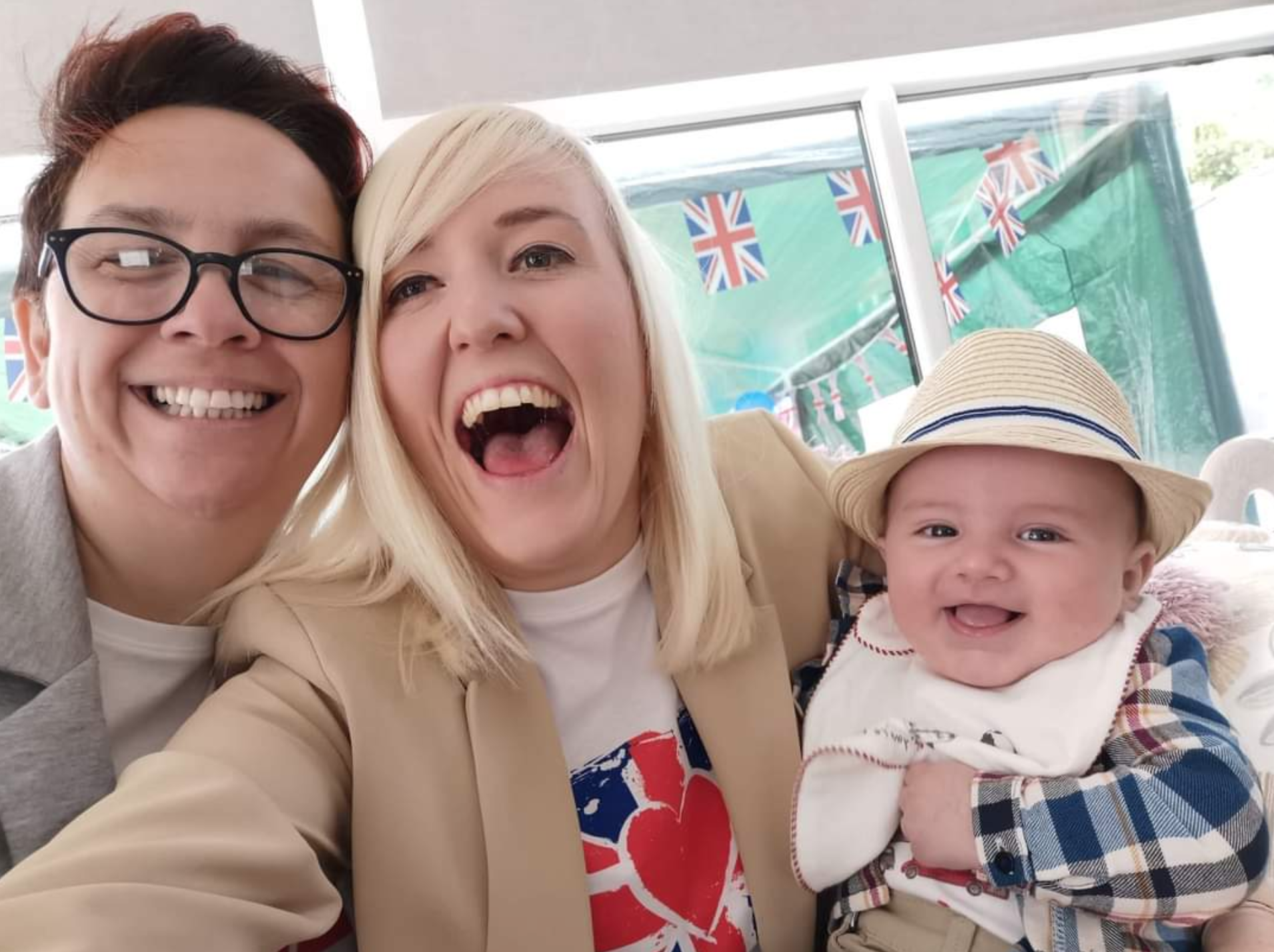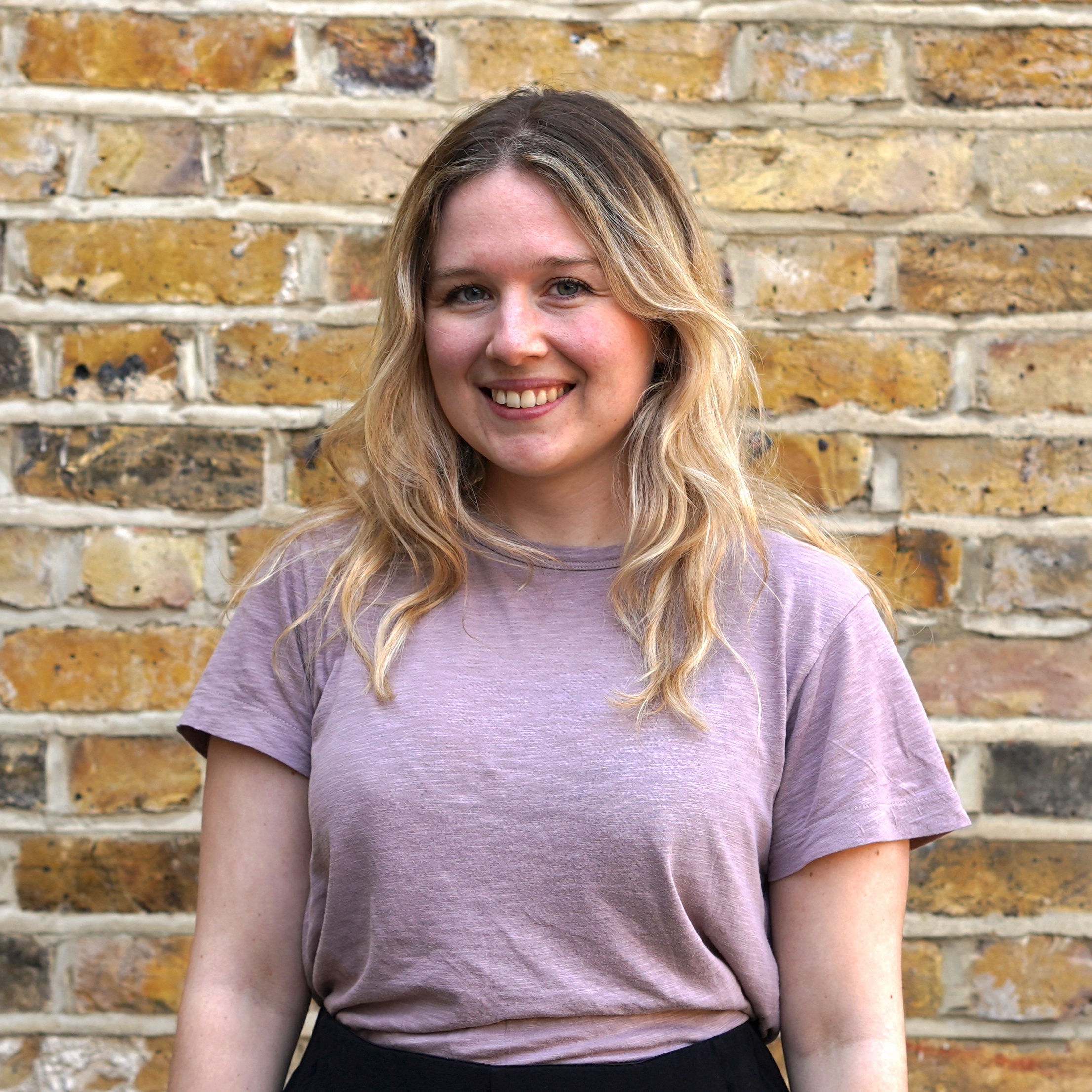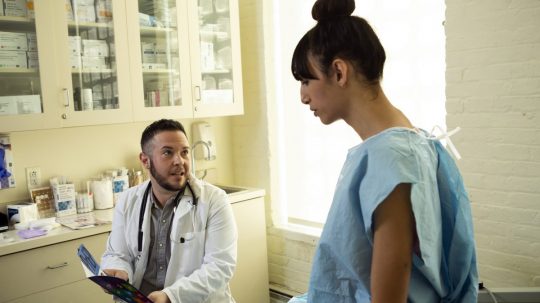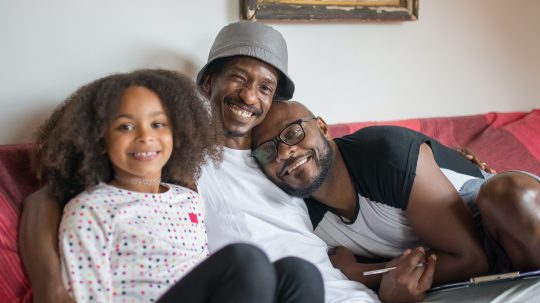Lesbians, bi women and some trans people will no longer have to pay more for IVF treatment after a landmark discrimination case. Lesbian couple Megan and Whitney Bacon-Evans launched a legal case showing that NHS England’s IVF policy discriminated against same-sex couples. Unlike heterosexual couples, some LGBTQ couples and single women have had to pay for artificial insemination to prove their fertility status before they can receive NHS help for IVF.
There will no longer be a requirement for female-same sex couples to pay for artificial insemination before accessing NHS-funded fertility treatments in England, the government said in its Women’s Health Strategy. The strategy, published last month, outlines that NHS treatment for female same-sex couples will start with six cycles of artificial insemination prior to accessing IVF services.
In their ongoing case against an NHS commissioning group, Megan and Whitney are arguing that the policy constituted direct and indirect discrimination on the grounds of sexual orientation under the Equality Act. They also say that it violates of Article 8 of the Human Rights Act which protects the right to family life.
Nancy Kelley, CEO of Stonewall, the LGBTQ+ charity which campaigned for better IVF access for all, said the move was a “giant step”.
“We are delighted that the UK government has listened to our call for fair and equal access to IVF treatment,” she said.
High financial costs
Kelley said that for years, lesbians, bi women and trans people have had to pay for up to £25,000 in private healthcare costs before they could access NHS-funded IVF.

Michelle Daltry with her partner Terri Richards and their son Osian Andrew Daltry. Credit: Michelle Daltry
Michelle Daltry, a consultant, and her partner Terri had a baby son six months ago. She said they were lucky to be able to afford the additional charges for artificial insemination, but that many other same-sex couples cannot.
“I think part of the narrative is that you’re making the choice to be a family and you’re a same-sex couple therefore, you’ve going to pay for it. But, my sexuality is not a choice. It’s who I am,” she said.
For the couple, it was important to conceive through the clinic so that Michelle would be recognised as her son’s legal parent. If not, she would not automatically have parental rights. The “initial hurdles” were “challenging” though, she said.
“We were told from the outset that we weren’t eligible for [NHS] funding to be able to go through the process because we don’t have what is perceived as a fertility problem,” said Michelle.
If the treatment had not worked, she said, they were worried about the financial costs of trying again.
“It puts a bit of additional pressure on you as a couple because not only are you trying to conceive and really excited about wanting to be a family, but you are also thinking about that extra pressure. Can we keep affording it? Can we keep going?”
‘Exciting’ reforms
Leah Mould, a carer living in Staffordshire, said the reforms were “exciting” for same-sex couples like her and her fiancé. When the couple had spoken about having children in the future, they were “worried” they would not be able to afford it because of the charges.
“Even though we may not be struggling with fertility issues, if we want a child, I don’t think we should have that taken away from us just because we’re not deemed to be in a normal relationship,” she said.
“It’s difficult to afford these types of things. We always said it was unfair that we didn’t have the same equality,” she said.
“Now we don’t have to spend all that money on being able to have a child in the future when we do want one.”
Megan and Whitney Bacon-Evans have said they hope the government Strategy prompts a change of policy in the NHS commissioning group that they are suing.





